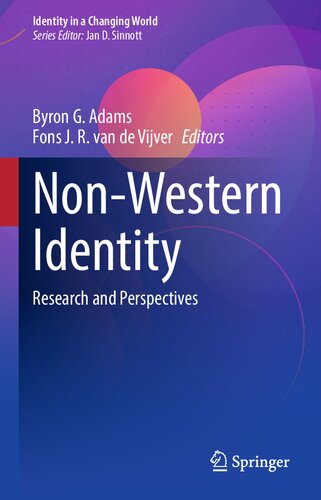

Most ebook files are in PDF format, so you can easily read them using various software such as Foxit Reader or directly on the Google Chrome browser.
Some ebook files are released by publishers in other formats such as .awz, .mobi, .epub, .fb2, etc. You may need to install specific software to read these formats on mobile/PC, such as Calibre.
Please read the tutorial at this link: https://ebookbell.com/faq
We offer FREE conversion to the popular formats you request; however, this may take some time. Therefore, right after payment, please email us, and we will try to provide the service as quickly as possible.
For some exceptional file formats or broken links (if any), please refrain from opening any disputes. Instead, email us first, and we will try to assist within a maximum of 6 hours.
EbookBell Team

4.0
16 reviewsIdentity is a construct strongly rooted and still predominantly studied in Western (or WEIRD; Western, educated, industrialized, rich, and democratic) contexts (e.g., North American and Western European). Only recently has there been more of a conscious effort to study identity in non-Western (or non-WEIRD) contexts. This edited volume investigates identity from primarily a non-Western perspective by studying non-Western contexts and non-Western, minority, or immigrant groups living in Western contexts. The contributions (a) examine different aspects of identity (e.g., personal identity, social identity, online identity) as either independent or interrelated constructs; (b) consider the associations of these constructs with aspects of intergroup relations, acculturative processes, and/or psychological well-being; (c) document the advancement in research on identity in underrepresented groups, contexts, and regions such as Africa, Asia, Eastern Europe, the Middle East, and South America; and (d) evaluate different approaches to the study of identity and the implications thereof. This book is intended for cultural or cross-cultural academics, practitioners, educators, social workers, postgraduate students, undergraduate students, and scholars interested in studying identity. It provides insight into how identity in non-Western groups and contexts may both be informed by and may inform Western theoretical perspectives.